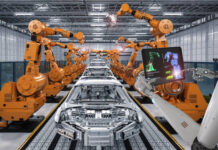HPE’s generally-available Container Platform software, launched this week, runs containers on non-virtualised data centre servers or the public cloud – and supports virtualised servers too, if customers prefer.
Kumar Sreekanti, CTO for Hybrid IT at HPE, provided a quote: “Customers benefit from greater cost efficiency by running containers on bare metal, with the flexibility to run on VMs or in a cloud environment.”
The HPE Container Platform contrasts with VMware’s launch of vSphere 7, which enables a single software layer to support virtual machines (VMs) and containers.
Tax-free compute?
HPE said running container services on bare metal servers avoids paying a virtualisation software tax – no need to buy VMware, for example – and a server resource tax, as servers run more efficiently. According to HPE, with containers on bare metal:
- There’s no need to start up the guest operating system (OS) of the VM, including a full boot process; this speeds development, operations, and time-to-market.
- Since each VM has its own guest OS, eliminating it reduces the RAM, storage and CPU resources – and the associated data centre costs – required to sustain it.
- There’s no need to have a management framework for a virtualised environment and a Kubernetes orchestration environment for containers (a reference to vSphere 7’s Kubernetes support).
- Run more containers on a given physical host than VMs, by eliminating multiple copies of guest OSes and their requirements for CPU, memory, and storage.
- Analytics and artificial intelligence (AI) workloads with machine learning (ML) algorithms require heavy computation to train the ML models; these applications will deliver faster results and higher throughput on bare-metal.
Source technology comes from HPE’s recent acquisitions of BlueData, giving it a container management control plane, and MapR. The latter provides a distributed file system that functions as a unified data fabric for persistent storage.
Supported storage services include HPE Cloud Volumes, and the Container Platform will work with storage devices that support the Kubernetes Container Storage Interface (CSI). For now, that means Nimble arrays and Cloud Volumes but a January HPE Community statement said of v1.0.0 of the HPE CSI Driver: “HPE only supports HPE Nimble Storage but more products are on the roadmap, such as HPE 3PAR, HPE Primera and HPE Cloud Volumes. Stay tuned for future updates!”
HPE is also introducing new Pointnext professional services and reference configurations for data-intensive application workloads such as AI, machine learning, data analytics, edge computing, and Internet of Things (IoT).








